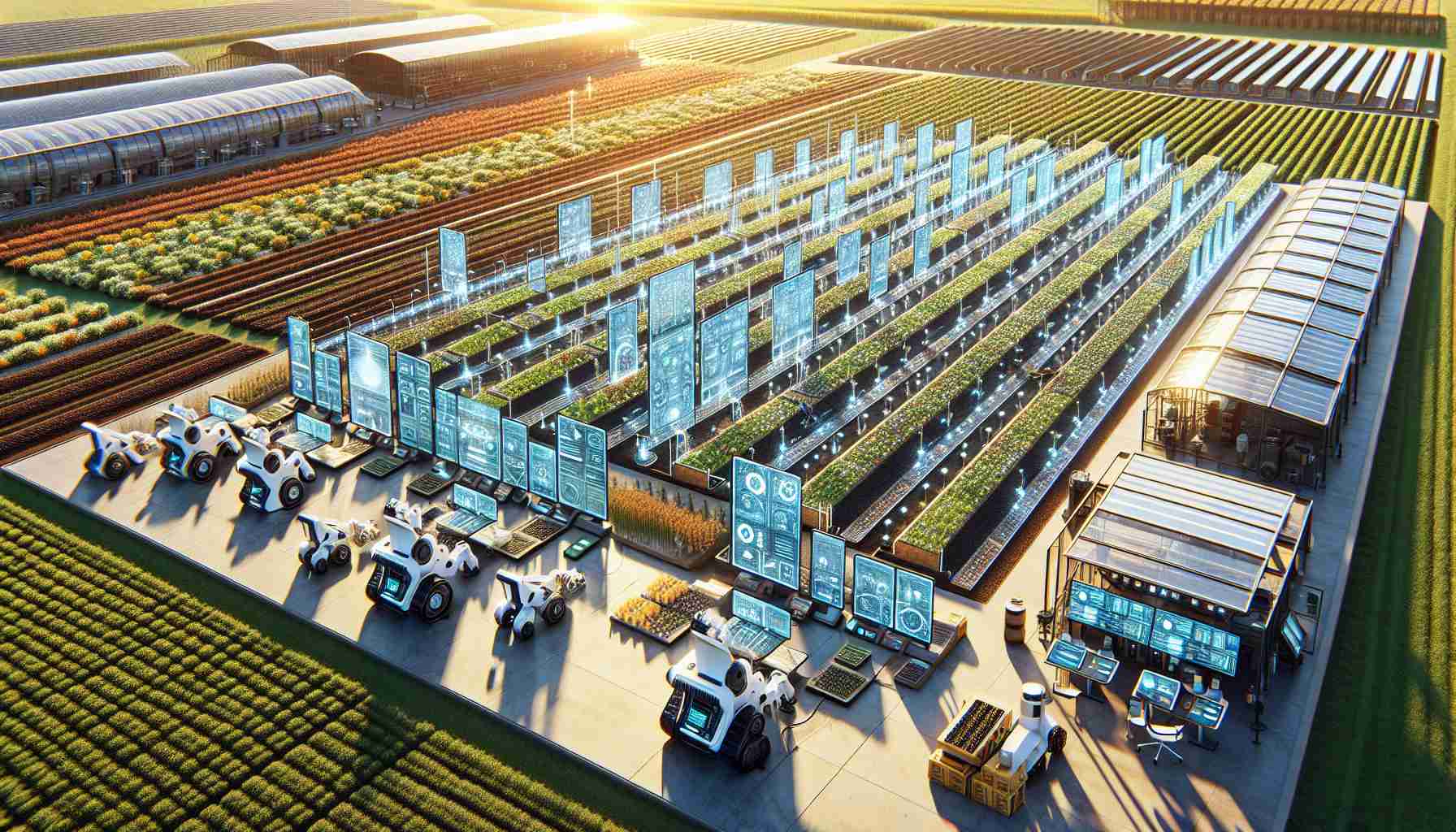In the rapidly evolving world of agriculture, the integration of artificial intelligence (AI) is leading to groundbreaking changes. This technology is not just a distant prospect; it is already reshaping the industry.
AI tools are becoming essential for farmers seeking to optimize yield and manage resources efficiently. By utilizing data-driven insights, farmers can make informed decisions that significantly enhance productivity. For instance, precision agriculture employs AI algorithms to analyze soil conditions, weather patterns, and crop health, allowing for tailored interventions that promote sustainability.
Moreover, AI-driven machinery is changing traditional farming practices. Autonomous tractors and drones equipped with smart technology can monitor fields with unparalleled accuracy, identifying areas that require attention. This minimizes waste and maximizes output, revolutionizing how crops are tended.
Furthermore, AI’s capability to forecast market trends equips farmers with the knowledge needed to anticipate demand and adjust their strategies accordingly. This proactive approach helps stabilize incomes and ensures that the agricultural sector remains resilient in the face of challenges.
As AI continues to advance, it holds the promise of a more efficient and sustainable agricultural future. Farmers who embrace these technologies can expect not only to enhance their operations but also to contribute significantly to global food security. The journey of agricultural transformation has just begun, and the impact will be felt for generations to come.
Unlocking Agricultural Potential: How AI is Revolutionizing Farming
# The Transformative Impact of Artificial Intelligence in Agriculture
In the dynamic realm of agriculture, Artificial Intelligence (AI) is no longer a concept of the future; it is an immediate reality, transforming farming practices and introducing innovative solutions that enhance productivity and sustainability.
How AI is Shaping the Agricultural Landscape
Precision Agriculture
One of the primary uses of AI in farming is through precision agriculture. This method employs sophisticated algorithms to assess various data points, including soil health, weather forecasts, and crop conditions. By analyzing this data, farmers can determine optimal planting times, suitable crop combinations, and precise irrigation needs. For instance, AI systems can suggest specific nutrients required for plants at different growth stages, leading to improved yield and resource conservation.
AI-Driven Machinery
The advent of AI-driven machinery represents a significant leap in farming techniques. Autonomous tractors and drones utilize AI and machine learning to carry out tasks such as planting, harvesting, and monitoring crops. These machines can operate with high precision, reducing waste by targeting only the areas that need attention. For example, drones can create detailed maps to help in monitoring crop health, enabling farmers to detect diseases or pest infestations early.
Market Forecasting
AI’s analytical capabilities extend beyond the fields into market dynamics. Predictive analytics powered by AI can forecast agricultural trends, allowing farmers to anticipate market demands and adjust their production strategies accordingly. This foresight can be crucial in ensuring that farmers push their products at peak demand times, enhancing profitability and providing stability amid fluctuating markets.
Pros and Cons of AI in Agriculture
Pros
– Increased Efficiency: AI optimizes resource use, minimizing waste and maximizing output.
– Data-Driven Decisions: Farmers can make informed choices based on real-time data.
– Enhanced Sustainability: Precision farming promotes eco-friendly practices, reducing the environmental impact.
Cons
– High Initial Costs: Implementing AI technology can be expensive, posing challenges for small-scale farmers.
– Dependency on Technology: Over-reliance on AI could lead to vulnerabilities in case of system failures.
– Data Privacy Concerns: Collecting vast amounts of data raises potential security issues regarding farmer information.
Use Cases of AI in Agriculture
1. Crop Monitoring: Utilizing drones and IoT devices for real-time monitoring.
2. Soil Management: AI models predicting soil health and nutrient needs.
3. Pest Control: Machine learning algorithms identifying pest risks before they escalate.
Future Trends and Innovations
As AI technologies continue to advance, future agriculture is set to become even more integrated with smart technologies. Innovations may include:
– Blockchain Agriculture: For tracking supply chains and ensuring food safety.
– Bioinformatics: Using AI in genetics to develop crops with enhanced resistance to environmental stresses.
Insights into Market Adaptation
Transitioning to AI-enhanced farming practices might initially be daunting for many. However, as the benefits of improved efficiency and increased yield become evident, more farmers are likely to embrace these technologies. The market is expected to shift towards agri-tech solutions that not only support farmers but also address global issues like food insecurity and climate change.
Conclusion
In conclusion, AI is revolutionizing agriculture, offering tools and insights that enable farmers to optimize their operations and promote sustainable practices. Adopting these technologies will be crucial for farmers who wish to thrive in an ever-changing agricultural landscape. The ongoing evolution of AI in agriculture signifies a promising future for food production and security at a global level.
For more insights and information on agricultural innovations, visit agriculture.com.
